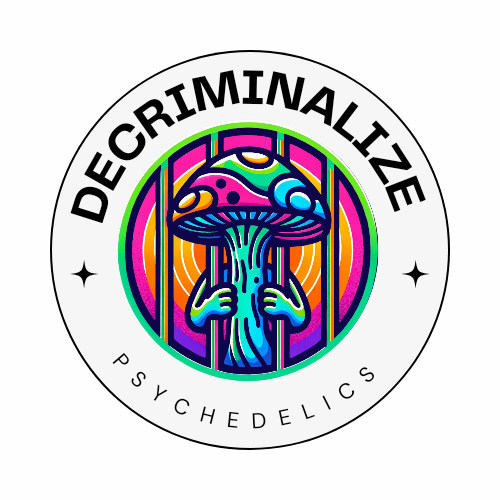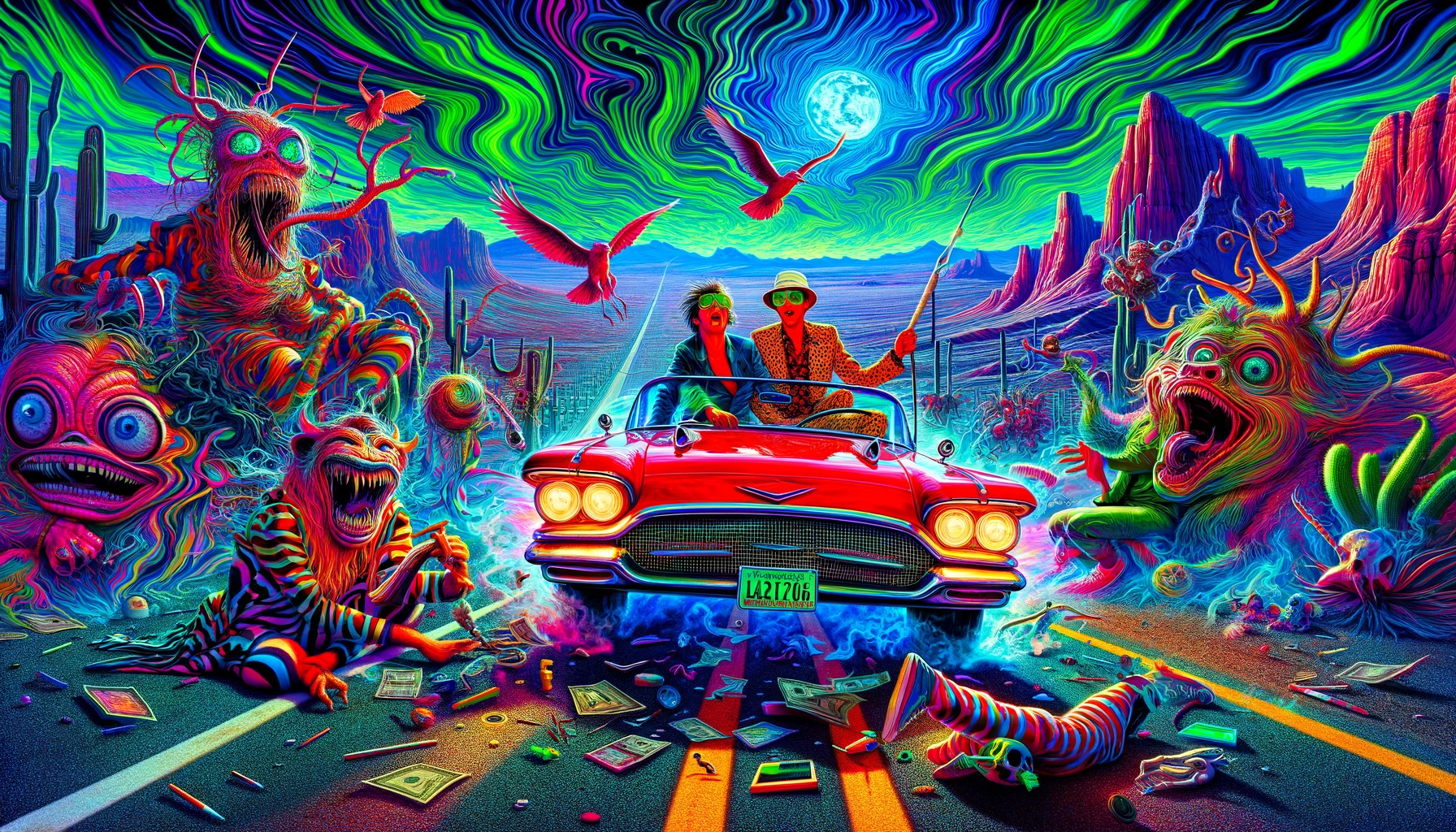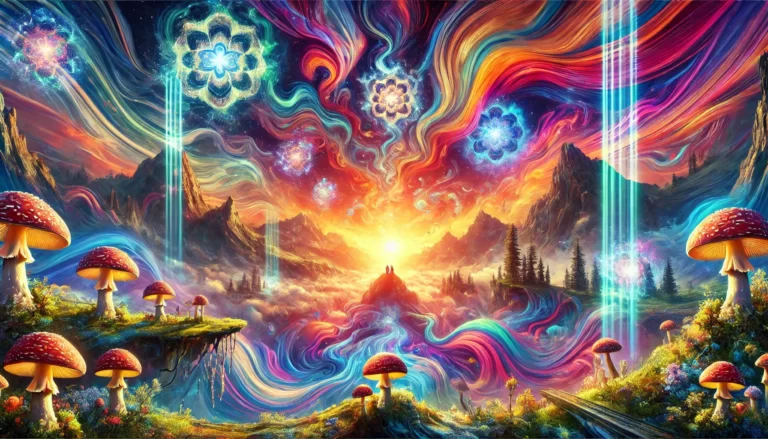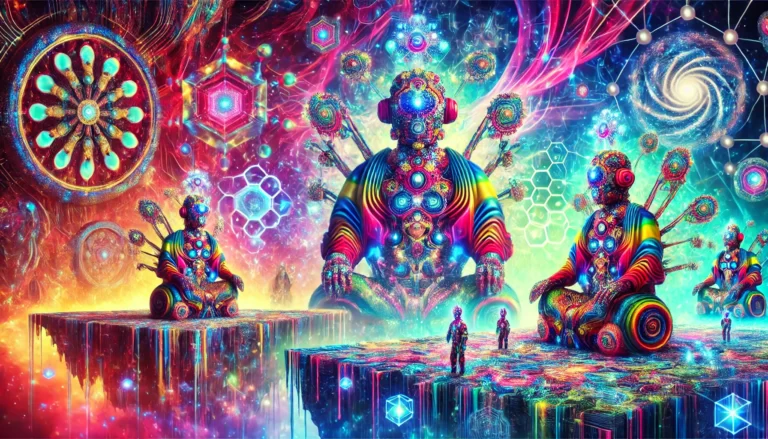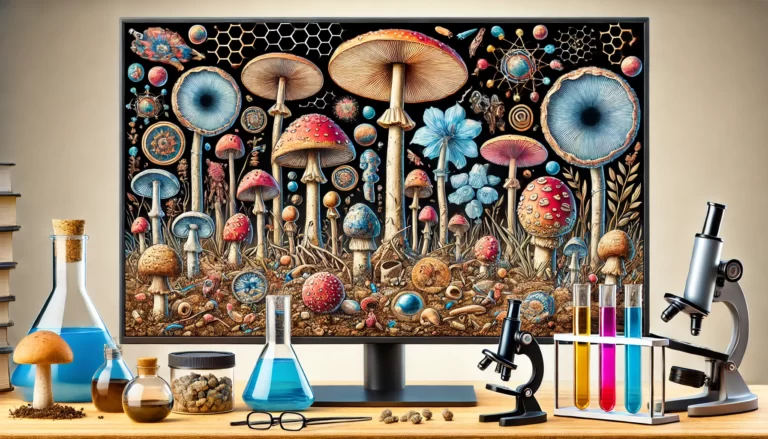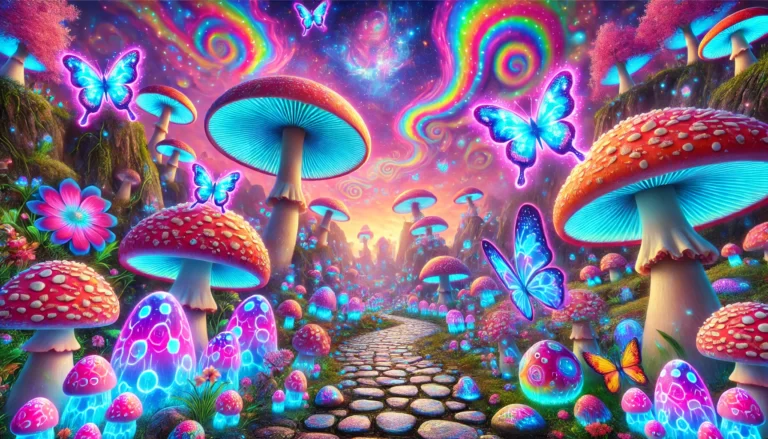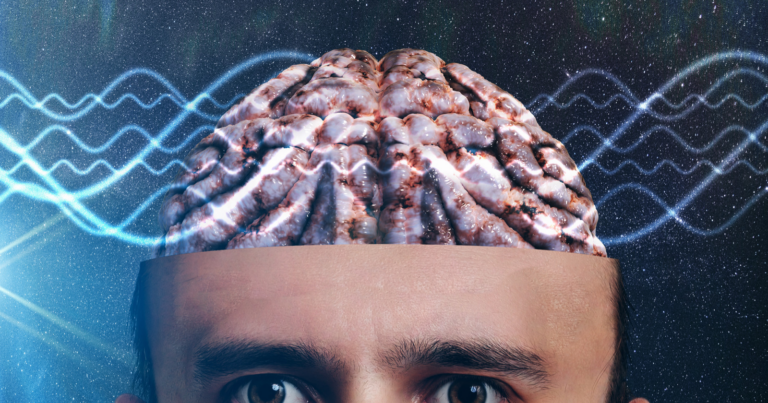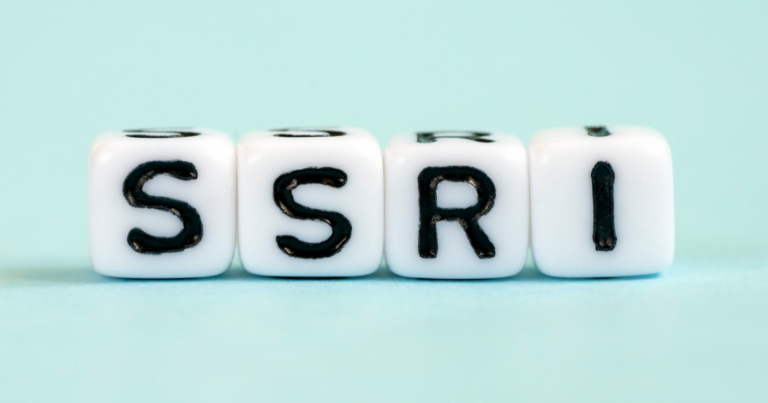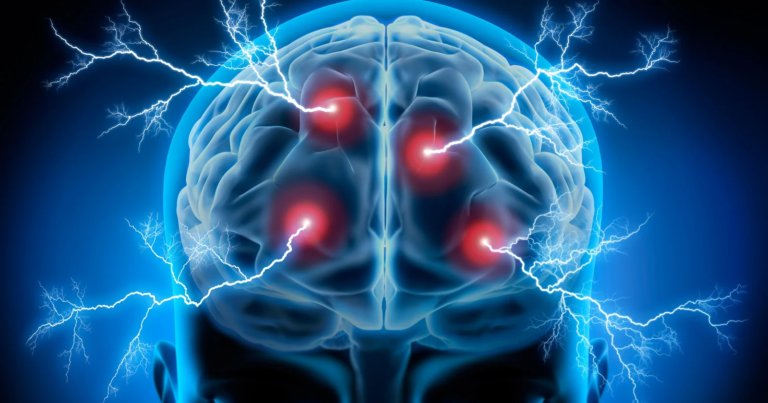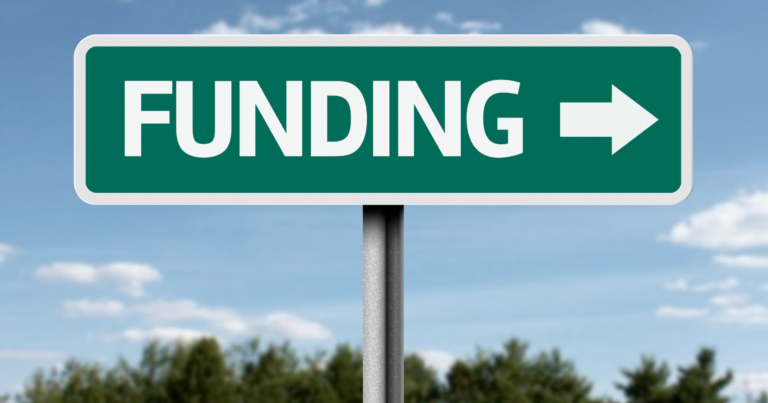Psychedelics in literature open doors to new thoughts and experiences.
There are numerous books that beautifully capture the fascinating subject of psychedelics.
These books provide an insightful understanding of how authors have used psychedelic experiences to create vivid, mind-bending narratives. They offer a unique perspective on altered states of consciousness and make us question our own perceptions of reality.
Whether you’re a seasoned psychonaut or a curious reader, these books promise to take you on a ride unlike any other.
1. “The Doors of Perception” by Aldous Huxley
Let’s start our exploration with a classic. “The Doors of Perception” by Aldous Huxley is an important piece of literature that has significantly contributed to the psychedelic discourse.
Huxley’s work provides a detailed account of his mescaline experience, offering readers a glimpse into an altered state of consciousness.
The title itself is derived from a line in William Blake’s poem, suggesting that when the doors of perception are cleansed, everything would appear as it is – infinite.
His reflections on his experience are profound, touching upon themes like the nature of reality, the limitations of human perception, and the potential therapeutic uses of psychedelic substances.
As we navigate through the pages of this book, we immerse ourselves in Huxley’s world and gain insights into his psychedelic experiences.
“The Doors of Perception” is a thought-provoking exploration into the human mind and consciousness. It paves the way for our understanding of psychedelics in literature and their ability to explore altered states of consciousness.
2. “Fear and Loathing in Las Vegas” by Hunter S. Thompson
Dive into the wild and chaotic world of “Fear and Loathing in Las Vegas” by Hunter S. Thompson. Renowned for its vivid depiction of drug-induced delirium and the exploration of the American Dream.
Thompson’s narrative is a whirlwind adventure that follows its protagonist, Raoul Duke, and his attorney, Dr. Gonzo, as they embark on a drug-fueled trip to Las Vegas.
The book is rife with psychedelic experiences as the two main characters ingest a variety of substances throughout their journey.
What sets “Fear and Loathing in Las Vegas” apart is its raw and unfiltered portrayal of drug use. Thompson’s unique writing style, termed as ‘Gonzo journalism’, blurs the lines between fiction and reality.
The book serves as a critique of the American Dream, while simultaneously exploring the depths of human consciousness through psychedelic experiences.
The narrative takes you on a roller-coaster ride through the highs and lows of drug use, providing an unflinching look into the realm of psychedelics.
For anyone interested in psychedelics and literature “Fear and Loathing in Las Vegas” is a must-read.
3. “The Electric Kool-Aid Acid Test” by Tom Wolfe
“The Electric Kool-Aid Acid Test”, by Tom Wolfe, is non-fiction book provides a firsthand account of the psychedelic experiences and adventures of Ken Kesey.
Wolfe’s narrative brilliantly captures the spirit of the 1960s counterculture movement.
He documents the group’s cross-country bus trip, their interactions with other counterculture figures like the Hells Angels and The Grateful Dead, and, most importantly, their extensive use of LSD.
“The Electric Kool-Aid Acid Test” is not merely about drug use; it’s a deeper exploration of the societal and cultural shifts that were taking place during that time. The psychedelic experiences serve as an illuminating backdrop to these changes.
Wolfe’s book is an essential read for anyone seeking to understand how psychedelics influenced literature and culture in the 1960s.
It gives a fascinating insight into how altered states of consciousness were explored and interpreted during this era.
4. “Dune” by Frank Herbert
Next on our literary journey, we encounter “Dune” by Frank Herbert. This masterpiece of science fiction literature introduces us to a world where a psychedelic substance plays a central role.
“Dune” is set in a distant future, where a spice called melange is the most valuable commodity. Melange, also known as the spice, has psychedelic properties, enhancing mental abilities and extending lifespan.
Herbert’s narrative is deeply intertwined with the effects of this psychedelic substance. The spice melange not only shapes the socio-political structure but allows characters to access higher states of consciousness.
“Dune” is a fascinating study of power, religion, and human potential, with psychedelics serving as a central theme.
It offers a unique perspective on how altered states can shape societies and destinies in the realm of speculative fiction.
Through exploring the effects and significance of the spice melange, “Dune” provides readers with an engaging exploration of psychedelics in literature.
5. “Naked Lunch” by William S. Burroughs
This novel, a landmark publication for the Beat Generation, offers an unflinching portrayal of altered states of consciousness.
“Naked Lunch” is a series of loosely connected vignettes, drawn from Burroughs’ own experiences with drug addiction. The narrative is a surreal and hallucinatory descent into the world of the ‘junkie’, providing readers with an intense, visceral experience.
Burroughs’ narrative style is non-linear and fragmented, much like the disorienting reality of a drug-induced state.
He doesn’t shy away from presenting the darker aspects of addiction.
While “Naked Lunch” can be unsettling, its significance lies in its fearless exploration of altered states and its influence on future generations of writers.
This book stands as a testament to the power of literature to depict even the most extreme states of consciousness.
6. “The Teachings of Don Juan: A Yaqui Way of Knowledge” by Carlos Castaneda
This book is the first in a series where Castaneda describes his apprenticeship with a self-proclaimed Yaqui Indian Sorcerer, Don Juan Matus.
Castaneda’s narrative focuses on his experiences with various psychedelic substances, including peyote and datura, under Don Juan’s guidance.
The book provides a detailed account of the rituals, effects, and spiritual insights gained through these experiences.
“The Teachings of Don Juan” offers readers an intimate look into the traditional indigenous use of psychedelics for spiritual and healing purposes. It emphasizes the significance of intent and respect when engaging with these powerful substances.
Through his experiences, Castaneda presents a unique perspective on reality and consciousness, offering readers a glimpse into the spiritual power of psychedelics within indigenous cultures.
7. “Island” by Aldous Huxley
As we reach the final stop on our exploration, we return to the works of Aldous Huxley with his novel “Island”. This book presents a utopian society where psychedelics are used for therapeutic and spiritual growth.
“Island” is set on the fictional island of Pala, where inhabitants use a substance called ‘moksha medicine’ as part of their spiritual practices.
Huxley explores how altered states of consciousness induced by psychedelics can aid in self-discovery and enlightenment.
His portrayal of psychedelic use is thoughtful and respectful, emphasizing their role in self-improvement and spiritual growth.
By offering us a vision of a society that integrates psychedelics into its culture responsibly, “Island” serves as an engaging exploration of the potential positive impact these substances can have when used with intent and respect.
Embracing the Journey
Navigating through these remarkable books, we’ve seen how literature transports us into the heart of psychedelic experiences.
Each book paints a unique picture of altered states of consciousness, offering richly textured insights into the human mind.
Exploring psychedelics in literature opens up new ways of seeing the world. From the raw and unfiltered narratives to the thought-provoking insights, these books serve as a gateway into this fascinating realm.
Yet, the journey doesn’t end here. There’s a wealth of contemporary literature that continues to explore psychedelics and altered states of consciousness.
